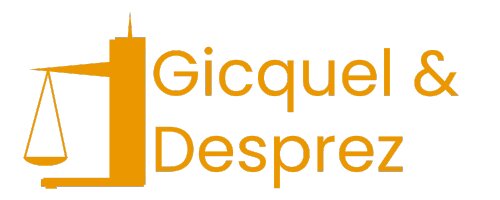Best Lawyers in France
Share your needs with us, get contacted by law firms.
Free. Takes 2 min.
Or refine your search by selecting a city:
List of the best lawyers in France
France Legal Questions answered by Lawyers
Browse our 7 legal questions in France and read the lawyer answers, or ask your own questions for free.
- Request for assistance with the transcription of marriage and the obtaining of the family record book
- Hello, I am contacting you because I am interested in your assistance in obtaining the transcription of my marriage (celebrated abroad) as well as the corresponding family record book. My marriage was celebrated outside of France, and the birth of my children also took place abroad. I would then like... Read more →
-
Lawyer answer by mohammad mehdi ghanbari
Here is the detailed procedure for transcribing your marriage and recognizing your children's French nationality. 1. Transcription of Marriage Celebrated AbroadSince your marriage took place abroad, it is valid in France but must be transcribed into the French civil registry...
Read full answer - criminal question
- Hello I need to file a criminal complaint against some unis
-
Lawyer answer by mohammad mehdi ghanbari
Hello and best regards, I have read your request regarding the need to file a criminal complaint against certain universities. This is a serious legal matter that requires a specific approach depending on the jurisdiction and the nature of the...
Read full answer - To file a complaint in front of the police
- Hello I would like to file a complaint against [company removed] for deformation. So I need to hire a lawyer
-
Lawyer answer by Cabinet Avocats CATAKLI - Avocats d'affaires
Hello, As a law firm practicing business law, we can advise you, respond to your legal needs and represent you before all French courts. You can contact us via our links and visit our website. Yours sincerely, CATAKLI Law Firm...
Read full answer
About Hiring a Lawyer in France
Hiring a lawyer in France is a structured process that typically involves identifying the type of legal assistance required, selecting a qualified lawyer, and understanding the fee structures involved. In France, lawyers, or "avocats," must be registered with a regional Bar Association, ensuring they adhere to strict codes of professional conduct. It's advisable to begin by consulting the local Bar Association, which can provide lists of lawyers specialized in various fields such as family law, criminal law, real estate, and more. Initial consultations are often used to discuss the nature of the legal issue, potential strategies, and fee agreements.
Why You May Need a Lawyer
There are numerous situations in France where one might need legal help, including:
- Processing legal documents such as contracts, wills, or business agreements.
- Dealing with property transactions or disputes.
- Representing a client in civil or criminal proceedings.
- Handling family matters such as divorce, custody, and inheritance issues.
- Navigating immigration matters like work permits or residency.
- Resolving employment disputes and understanding labor laws.
- Seeking advice on tax obligations and financial regulations.
In these cases, a lawyer can provide not just representation but also strategic advice to help navigate the complexities of French law.
Local Laws Overview
France’s legal system is based on civil law, rooted in the Napoleonic Code, which is distinct from the common law systems used in some other countries. Key aspects of the law that are particularly relevant include:
- Civil Law: Governs personal disputes and property rights, including family law and inheritance.
- Criminal Law: Deals with offenses against individuals or society, prescribing punishments ranging from fines to imprisonment.
- Commercial Law: Covers business operations and corporate governance, crucial for entrepreneurs and business owners.
- Labor Law: Encompasses workers' rights, employment contracts, and workplace regulations.
- Tax Law: Addresses the obligations of individuals and businesses concerning French taxation.
Each domain has its nuances and specialized legal practitioners who are well-versed in their respective fields.
Frequently Asked Questions
What is the average cost of hiring a lawyer in France?
The cost can vary greatly depending on the lawyer's experience, complexity of the case, and the region. Fees can be hourly or fixed; it's important to ask for clarity on costs during the initial consultation.
Do I need a lawyer to buy property in France?
While not mandatory, hiring a lawyer can be beneficial due to the complexity of property laws and to ensure that all transactions are conducted legally and in your best interest.
Can I get free legal advice in France?
Yes, various legal aid societies offer free consultations, and some lawyers provide an initial consultation at no cost. The French government also offers legal aid for citizens with limited financial resources.
How do I verify a lawyer’s credentials in France?
Ensure that the lawyer is registered with the appropriate regional Bar Association. You can typically verify this by contacting the Bar Association directly.
How can I find a lawyer who speaks English in France?
Contact the French Bar Association or specific expat communities for recommendations on English-speaking lawyers who cater to international clients.
What should I bring to my first meeting with a lawyer?
Bring all relevant documents related to your legal issue such as contracts, correspondence, identification, and any prior legal paperwork. This helps in providing comprehensive advice.
How long does it typically take to resolve a legal case in France?
It varies significantly depending on the case complexity and the court system's efficiency. Simple cases might take a few months, while more complex disputes could extend over years.
Is there a difference between a 'notaire' and a 'lawyer' in France?
Yes, a 'notaire' is a public officer handling legal formalities in non-contentious matters such as real estate and inheritance. A lawyer provides advice and representation in contentious cases.
What type of law does my lawyer need to specialize in?
Choose a lawyer with expertise in the specific area of your legal issue, whether it’s family, criminal, commercial, real estate, or another field.
Can I change lawyers if I am not satisfied with their services?
Yes, you are free to change lawyers if you are unsatisfied with their services. It's essential to formally terminate the contract and settle any outstanding fees.
Additional Resources
For anyone seeking legal advice in France, the following resources can be helpful:
- Legifrance - The official French government site providing access to legislative and regulatory texts.
- Ministry of Justice - Official information and resources on legal aid, court proceedings, and more.
- Local Bar Associations - For listings of accredited lawyers specializing in various fields.
- Chambres de Métiers et de l'Artisanat - Offers advice on commercial law for small business owners and entrepreneurs.
Next Steps
If you need legal assistance in France, start by identifying the type of legal issue you are facing to determine the specialization required. Contact a local Bar Association to find a list of qualified lawyers or conduct research online for reviews and recommendations. Ensure to have all your documents organized for the initial consultation, where you can discuss your case and understand the lawyer's approach and fee structure. In case of financial constraints, look into options for legal aid. Having the right legal support can make navigating France’s legal landscape considerably smoother.
Lawzana helps you find the best lawyers and law firms in France through a curated and pre-screened list of qualified legal professionals. Our platform offers rankings and detailed profiles of attorneys and law firms, allowing you to compare based on practice areas, experience, and client feedback.
Each profile includes a description of the firm's areas of practice, client reviews, team members and partners, year of establishment, spoken languages, office locations, contact information, social media presence, and any published articles or resources. Most firms on our platform speak English and are experienced in both local and international legal matters.
Get a quote from top-rated law firms in France — quickly, securely, and without unnecessary hassle.
Disclaimer:
The information provided on this page is for general informational purposes only and does not constitute legal advice. While we strive to ensure the accuracy and relevance of the content, legal information may change over time, and interpretations of the law can vary. You should always consult with a qualified legal professional for advice specific to your situation.
We disclaim all liability for actions taken or not taken based on the content of this page. If you believe any information is incorrect or outdated, please contact us, and we will review and update it where appropriate.
Refine your search by selecting a practice area.
Accidents & Injuries
Banking & Finance
Bankruptcy & Debt
Business
Civil & Human Rights
Consumer Rights
Corporate & Commercial
Criminal Defense
Employment & Labor
Energy, Environment & ESG
Family
Immigration
Insurance
Intellectual Property
Lawsuits & Disputes
Media, Technology and Telecoms
Notary Services
Private Client
Real Estate
Browse law firms by city in France
Refine your search by selecting a city.




































